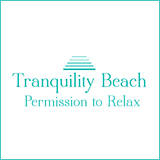- WELCOME
-
SLEEP
-
REALTY & BUSINESS
-
THINGS TO DO
-
EAT
- SPECIAL
- KEEP IN TOUCH
- SAVE 10%
|
|
There is nothing in Anguilla law that permits payment to a developer in return for the right to use a condo or villa or hotel room for a specific amount of time.
The concept makes sense, which is why the industry thrives in some locations (ex., St. Maarten). After all, visitors often come to Anguilla every year, sometimes two or three times. It would make sense for them to prepay those vacations forever in return for a one-time payment and a small administration fee.
But high-pressured entrepreneurs/marketers have done much to sully the reputation of this industry. More recently, though, 5-star operations like the Ritz Carlton, Hyatt and Hilton have developed successful operations. You even get a deed for your time.
However, there is no such law in Anguilla that would make such a deed legal. So when legal push comes to shove, you are exposed.
There is, however, one company offering fractional ownership that is an exception here in Anguilla...
CéBlue.
As stated above, there is no legislation in Anguilla for the fractional ownership of real estate. But, a corporation can own property and that corporation's shares can be held by multiple people or entities.
Purchasing ownership at CéBlue is an investment in a shared ownership corporation, one which owns a CéBlue villa (the shared corporation's ownership appears in the Land Registry). Your shares can be freely traded and can appreciate/depreciate in value over time.
With this structure (separate corporation), the benefit is buyer protection. Your deed is held in trust by FNTC to prevent unauthorized encumbrances, mortgages, easements and other uses of the land. Additionally, as a shareholder of a separate corporation, you are not liable for any debts or liabilities CéBlue may incur.
On that basis, the Attorney General (AG) determined that CéBlue's form of fractional ownership, via shareholding, is legal under Anguilla's Corporations Act. With the AG's decision, the Government of Anguilla entered into an MOU with CéBlue, approving the project.
The need is there. And everyone (developer, visitor and government) could "make a profit" if a deal is fairly structured. That, though, is often a problem. Administration fees can soar. The administrator may not take good care of the property.
Still, it could be done. Anguilla could avoid the ugly "hard sell" cons if it legislated this properly. It could even be a big shot in the arm for Anguilla if they could attract a 5-star developer.
Until that happens, though, beware of any company that sells fractional ownership or timeshares. I am not an attorney, so I am not saying that it is impossible to structure something that might be legal.
You can buy a condo, villa or even an apartment, as long as you can take full title to it, which includes the payment of an Alien Landholder License.
Some people have bought timeshares on the island. I know of one operation where all works quite well. That should continue, as long as there is never a big disagreement.
If and when there is, though, you will be the one left holding the legal bag. Why? Because there is no law in Anguilla that recognizes the buying of time. That means that there is no way for you to defend yourself legally, no matter what your contract says.
Nor is there a law that permits fractional interest in real estate. Yes, you and your friends could get together and form a partnership to buy a villa. That would be between you and your friends.
But if someone is selling 1/4 of a villa, it still boils down to selling time. Otherwise, if it is the villa being split, which bedroom is yours? Which 1/4 of the land is yours?
The "fractional" or "private club" concept does not get around the law.
If you try to register any form of time share or fractional ownership at the Land Registry, you will be refused. You will never legally own what you think you do.
You simply cannot buy anything that boils down to splitting the use of an accommodation. Could a company group 25 owners into 25 shareholders of one company which buys a villa? Honestly, I do not know.
While the concept makes sense for someone who visits only a few weeks per year, beware of what sounds like it meets those needs. Like I said, the best way to be sure, no matter how rock-solid a proposal may seem, is to get a legal opinion.
"Own it when you're here and forget about it when you're not" is a strong offer. If it's done well, it could be profitable for all parties and stay well within the 5-star image of Anguilla.
But until it's legal, if you are thinking about buying time, no matter how that deal is structured, consult an attorney before signing anything. I'm always happy to suggest our family attorney, Eustella Fontaine.

Tranquility Beach
(Luxury Hotel & Residences)

Long Bay Villas:
The Ultra-Luxury Villas
Sky, Sea & Sand

Santosha Villa Estate:
Anguilla's Most Sophisticated
Ultra-Luxury Villa
Facebook Comments
Have your say about what you just read! Leave a comment in the box below.